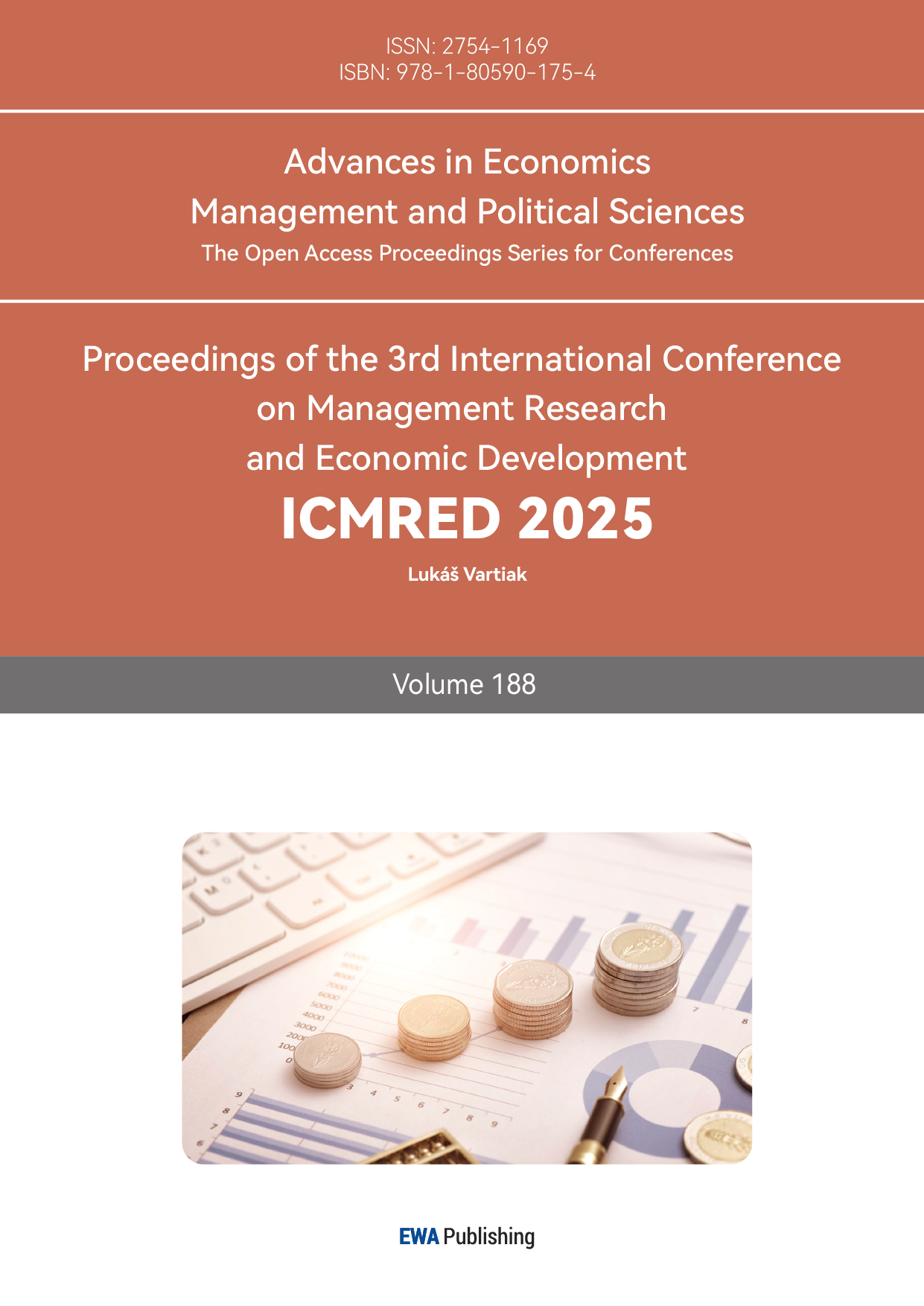References
[1]. Yining Zhang. (2019). Case Study of Huge Losses in United Petrochemical Futures Trading, Hebei University of Geosciences.
[2]. Wei Xie. (2019) 46 million yuan! Why did Sinopec repeat the "huge loss of China Aviation Oil"?. China Economic Weekly, (03),67-69.
[3]. North Evening Online. (2019). Sinopec's "black swan" event landed in 2018, and its net profit hit a new high in the past five years. Retrieved from https://baijiahao.baidu.com/s?id=1623872601622548100&wfr=spider&for=pc
[4]. Xiaozhou Han, & Shuxin Yuan. (2025). Manager Overconfidence, Analyst Concern and Stock Price Crash Risk. Chinese market, (03),32-36.
[5]. Min Shan. (2024). Breaking through "anchoring" to cultivate empirical awareness. Education, (29),98-100.
[6]. Junmei Lan, Xuguang Hao, & Shun Li. (2017). Research on the irrational bias of securities regulators caused by fear of error. International Business (Journal of University of International Business and Economics), (04),113-123.
[7]. Chenyu Guo. (2023). Herd Psychology - The "Nirvana" of Salesmen, Xiandai Banzu, (08),41.
[8]. Yang Song, Yaocheng Shi & Guangsu Zhou. (2024). Wage premium and formation mechanism of state-owned enterprises. Economic Theory and Economic Management,44(07),72-85.
[9]. Siying Wang. (2024). A study on the venture capital contract model considering both overconfidence and loss aversion. Journal of the Neijiang Teachers College.,39(08),91-95.
[10]. Dayu Han, Yang Li, & Zhida Yuan. (2019). Analysis and reflection on Sinopec's huge loss incident. Plastic packaging, 29(01), 55-58.
Cite this article
Yu,L. (2025). Interpreting the "Black Swan" Case of United Petrochemical from the Perspective of Behavioral Finance. Advances in Economics, Management and Political Sciences,188,44-49.
Data availability
The datasets used and/or analyzed during the current study will be available from the authors upon reasonable request.
Disclaimer/Publisher's Note
The statements, opinions and data contained in all publications are solely those of the individual author(s) and contributor(s) and not of EWA Publishing and/or the editor(s). EWA Publishing and/or the editor(s) disclaim responsibility for any injury to people or property resulting from any ideas, methods, instructions or products referred to in the content.
About volume
Volume title: Proceedings of the 3rd International Conference on Management Research and Economic Development
© 2024 by the author(s). Licensee EWA Publishing, Oxford, UK. This article is an open access article distributed under the terms and
conditions of the Creative Commons Attribution (CC BY) license. Authors who
publish this series agree to the following terms:
1. Authors retain copyright and grant the series right of first publication with the work simultaneously licensed under a Creative Commons
Attribution License that allows others to share the work with an acknowledgment of the work's authorship and initial publication in this
series.
2. Authors are able to enter into separate, additional contractual arrangements for the non-exclusive distribution of the series's published
version of the work (e.g., post it to an institutional repository or publish it in a book), with an acknowledgment of its initial
publication in this series.
3. Authors are permitted and encouraged to post their work online (e.g., in institutional repositories or on their website) prior to and
during the submission process, as it can lead to productive exchanges, as well as earlier and greater citation of published work (See
Open access policy for details).
References
[1]. Yining Zhang. (2019). Case Study of Huge Losses in United Petrochemical Futures Trading, Hebei University of Geosciences.
[2]. Wei Xie. (2019) 46 million yuan! Why did Sinopec repeat the "huge loss of China Aviation Oil"?. China Economic Weekly, (03),67-69.
[3]. North Evening Online. (2019). Sinopec's "black swan" event landed in 2018, and its net profit hit a new high in the past five years. Retrieved from https://baijiahao.baidu.com/s?id=1623872601622548100&wfr=spider&for=pc
[4]. Xiaozhou Han, & Shuxin Yuan. (2025). Manager Overconfidence, Analyst Concern and Stock Price Crash Risk. Chinese market, (03),32-36.
[5]. Min Shan. (2024). Breaking through "anchoring" to cultivate empirical awareness. Education, (29),98-100.
[6]. Junmei Lan, Xuguang Hao, & Shun Li. (2017). Research on the irrational bias of securities regulators caused by fear of error. International Business (Journal of University of International Business and Economics), (04),113-123.
[7]. Chenyu Guo. (2023). Herd Psychology - The "Nirvana" of Salesmen, Xiandai Banzu, (08),41.
[8]. Yang Song, Yaocheng Shi & Guangsu Zhou. (2024). Wage premium and formation mechanism of state-owned enterprises. Economic Theory and Economic Management,44(07),72-85.
[9]. Siying Wang. (2024). A study on the venture capital contract model considering both overconfidence and loss aversion. Journal of the Neijiang Teachers College.,39(08),91-95.
[10]. Dayu Han, Yang Li, & Zhida Yuan. (2019). Analysis and reflection on Sinopec's huge loss incident. Plastic packaging, 29(01), 55-58.









